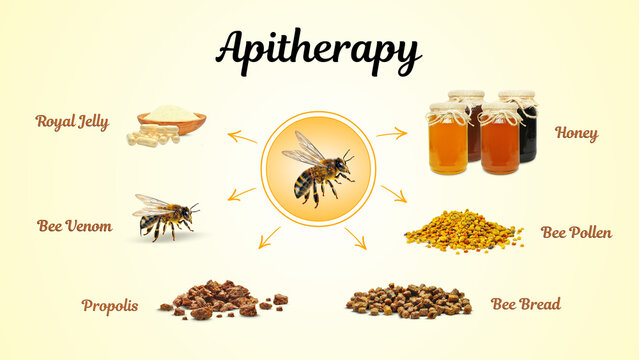
What Is Apitherapy?
Apitherapy is a specialized scientific field grounded in medical science, where experienced medical professionals are considered the cornerstone of this emerging therapeutic domain. While various disciplines such as botany, ecology, beekeeping, phytochemistry, and food science play essential roles in supporting the objectives of apitherapy, they do not possess the scientific, ethical, or legal authority to prescribe treatments or intervene in the clinical domain.
Apitherapy refers to the therapeutic use of honeybees and their products, with a history spanning thousands of years. Numerous historical records across ancient civilizations—including Egyptian, Chinese, Korean, Persian, and Greek—document the use of bee products in treating various ailments. This practice encompasses the use of honey, pollen, bee bread, royal jelly, propolis, bee venom, beeswax, bee larvae, dead bees, hive air, and even resting on hives.
Today, many countries incorporate apitherapy as a form of complementary or alternative medicine, particularly in addressing conditions such as cancer, Parkinson’s disease, Alzheimer’s, and various infections.
The Science of Apitherapy
As an interdisciplinary science, apitherapy draws upon expertise from immunology, pharmacology, clinical medicine, nutrition, food science, phytochemistry, toxicology, microbiology, and botany. The application of apitherapy requires adherence to established treatment protocols based on recognized pharmacopeias and must be administered under the supervision of clinical professionals.
Particular attention must be paid to the allergenic potential of bee products, especially in terms of hypersensitivity and the risk of anaphylactic shock. Apitherapy is firmly rooted in medical knowledge, requiring a comprehensive understanding of a patient’s physiological status, current medications and potential interactions, allergy risks, underlying health conditions, and the appropriate dosage tailored to age, gender, and physical condition. These critical evaluations fall strictly within the competence of licensed medical professionals.

